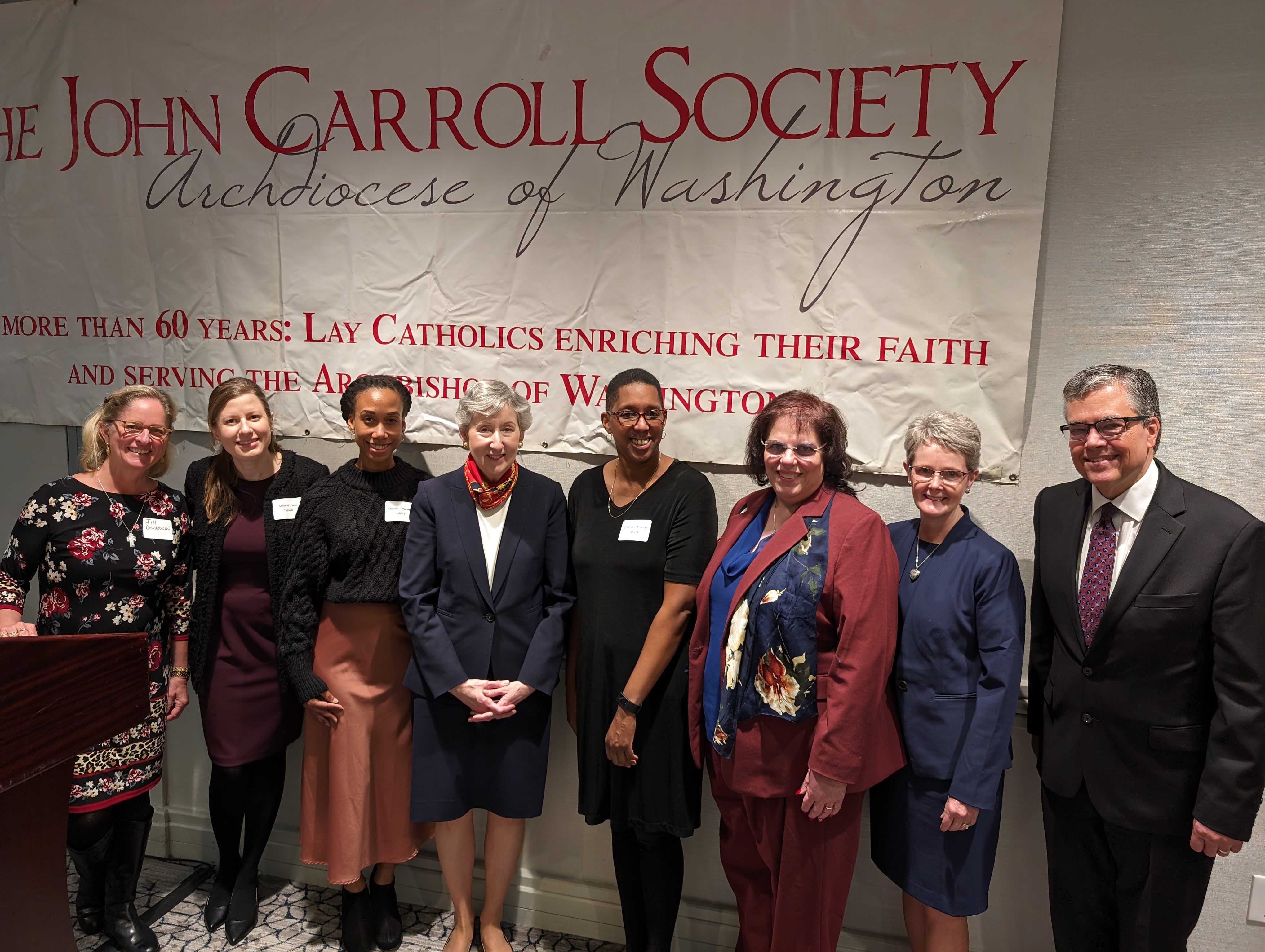
Dean Marie Nolan's talk at the John Carroll Society emphasized the virtues of courage and compassion in the context of nursing. She initially focused on the perception of nurses as compassionate but aimed to highlight their often overlooked courage. The title, "Courage and Compassion, Two Sides of the Same Nurse," the universal importance of these virtues.
Dean Nolan shared her experiences as the Dean of Nursing at Catholic University, highlighting the collaboration with other disciplines, such as engineering and business, in fostering virtuous graduates. She emphasized the unifying mission of the university to prepare individuals devoted to others across various fields, stating, "I learned that virtuous individuals are not just needed in nursing and engineering but in social work, business, law, the sciences, and the arts and that preparing good and virtuous individuals who devote their lives to others is our unifying mission at the university."
The talk delved into nursing history, citing examples of courage and compassion from figures like Catherine McAuley, Mother Teresa, and military nurses. Nolan acknowledged the vital role of all nurses, including military nurses, in demonstrating these virtues, especially in challenging environments like emergency departments. She referenced a historical example, stating, "During World War II, 77 women Army and Navy nurses later known as the Angels of Bataan were kept in a Japanese prison camp in the Philippines from 1942 to 1945. Instead of remaining in their rooms and falling into despair, these nurses set up a hospital in the camp and cared for US soldiers, civilians, and even Japanese soldiers. US military nurses cared for the Japanese soldiers in WWII, for Viet Cong soldiers in Viet Nam and for insurgents in the Gulf War. The Geneva Convention calls for this but more than this, there is a call to caring for nurses that applies to every human person."
Personal stories, such as Dr. Maura Wenzel's incorporation of Catholic faith into practice, illustrated the everyday challenges nurses face and how virtues guide their responses. Nolan highlighted the positive impact of faculty and the university community on students, shaping them into compassionate individuals devoted to service. She shared, "The impact of our faculty and the entire university community is seen in our students. This past fall, during alumni weekend, we had a panel of our junior and senior nursing students at the front of a room with alumni. We usually ask them what has been most rewarding or most challenging about their nursing studies. This year near the end of the panel, I also asked, 'How have your studies here at the Conway School of Nursing and The Catholic University of America influenced your faith.' One student said, 'I say morning prayers now. This is the influence of the Dominican fathers who are our chaplains,' she added. Another said, 'In the past, I would have judged negatively some patients I have cared for, because of their behaviors that led to their illness. But because of Dr. Marysanta Bigony and Dr. Maura Wenzel, I now see every patient as a child of God whom I am called to love and care for.'"
Aristotle and Josef Pieper's philosophical insights were referenced to underscore the importance of practicing virtues and exercising prudence. Nolan incorporated a quote from Pellegrino and Thomasma, stating, "Pellegrino and Thomasma in their book, 'The Virtues in Medical Practice,' said that prudence allows the physician or nurse to assess the facts in a particular situation and act to achieve the good for the patient (p23). And that compassion is an essential virtue that allows the nurse or doctor to enter into OR to experience something of the patient’s suffering (pg 25)."
In conclusion, Nolan emphasized that prudence, courage, and compassion are guiding virtues for professionals and students, regardless of their roles, fostering a fulfilling and rewarding life while making the world a better place. She concluded with the quote, "Whatever our professional role or the role of the students we are forming, prudence, courage and compassion are the virtues that can guide us to making the world a better place and to a fulfilling and rewarding life."
References
Aristotle (1987). Nicomachean Ethics, Translated by Martin Ostwald,
Macmillan Publishing Company, New York, NY.
Norman, Elizabeth M (1999). We Band of Angels: The untold story of the
American nurses trapped on Bataan by the Japanese, Pocket Books, New
York, NY
Pellegrino, Edmund D. & Thomasma, David C. (1993). The Virtues in
Medical Practice, Oxford University Press, New York, NY
Pieper, Josef (1965). The Four Cardinal Virtues, University of Notre Dame
Press, Notre Dame, Indiana.
